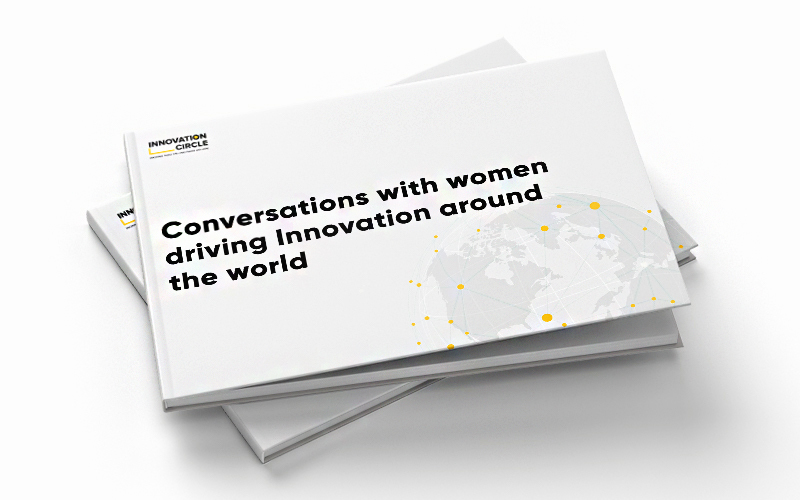
A Conversation with Gbeminiyi Laolu-Adewale, Head, Innovation Strategy and Commercialisation at Guinness
“Business leaders will drive innovation by encouraging openness and diversity within their teams. This enables team members to be free and unbiased in their assessment of business situations.”
What does innovation mean to you?
Innovation simply is the act of doing things differently to drive efficiency that ultimately improves customer experience, humanity and the world we live in.
How can business leaders drive innovation within their teams and company?
Business leaders will drive innovation by encouraging openness and diversity within their teams. This enables team members to be free and unbiased in their assessment of business situations, it also makes room for out of the box thinking that generates innovative ideas. Business leaders must also be humble enough to receive feedback as this is the only way to test the quality of output be it product or services. Most of the time, the feedback received from team-mates, employees, customers and consumers form the necessary springboard for Innovation.
“…the feedback received from team-mates, employees, customers and consumers form the necessary spring board for Innovation.”
How do you think the private sector can develop innovative solutions that can drive growth and push for disruption within the public sector?
First of all, I’d like to say there is no better sector equipped to lead and drive innovation as much as the private sector and I say this because of the bureaucracy that poses a limitation in the public sector does not exist such in the private sector as it is mostly profit-driven. The quest for profitability in a tight economy has led many private sector organizations and multinationals to innovate and come up with better quality, more efficient product/services that command higher prices whilst striving to drive down cost significantly.
“…there is no better sector equipped to lead and drive innovation as much as the private sector…”
Linking this to the public sector, the private sector can drive growth and disruption in its counterpart sector through partnerships. With the huge opportunities in the power, housing and transport sectors, private organizations would have to come to the table with their disruptive solutions and seek to partner with Government to create a win-win situation. Example of disruption in the power sector would be offering solar-powered electricity solution for homes and businesses. Private sector execution with Government backing in terms of funding and platform will lead to a big positive change in the Nigerian economy and a win-win for all. This way, the private sector can command a profitable price point for stable power supply, the Government/Public sector wins by delivering on its age-long promise of stable power and also generates revenue in the process and the Nigerian citizens win by having stable power supply which makes it easy for their families, small business owners and large corporates to thrive.
As Head of Innovation strategy in a multinational company as Guinness, how have you been able to translate internal challenges to innovative solutions?
Working in a multinational company in a tough economy like ours leaves you with only one option which is to Innovate for growth. Product innovation is the only way to unlock new growth and profitability. With the rising cost of commodities, government policy changes on duties and taxes, constant change in consumer behaviour and the unending squeeze in consumer income, the only way for multinationals to remain relevant in business is by translating these challenges into opportunities to innovate for growth.
What disruptive techniques would you say companies can adopt to drive business growth?
Companies planning for disruption could adopt 2 techniques:
- Deliberate strategy: With this technique, companies make the choice of disruption through careful research, data gathering, financial analysis and planning. This usually takes years of research and planning with a dedicated project team in place to plan and execute the disruptive Innovation. This is the most common technique adopted by big multinationals.
- Emergent Strategy: This is a more spontaneous approach where disruption happens as a result of unplanned events. i.e. with the advent of the Coronavirus in China, The MD of Fine Hygienic Holding seized the moment to turn around a lot of his company by adding the production of 210 times reusable face masks to his product offering. This is a company than previously majored in Toilet papers and diaper production but with an unplanned event, he took the onus upon himself to Innovate and disrupt the Asian/middle east market with this unique facemask offering that commands higher price point than the existing facemasks in the market but offers better value to the consumer.
What new concepts have you been inspired by that has caused a shift in the way you approach business challenges.
I’m very much inspired by the disruption in education with the new wave of online courses which ranges from short courses to long term courses, B.Sc’s and MBA degrees that can be earned right from your bedroom or office without stepping into a physical class. This wave of online studies has changed the face of education in Nigeria and around the world putting an end to geography thus enabling more people to stay connected with learning at their own pace in the comfort of their bedrooms. This has influenced the way I approach business challenges as I am able to engage with my team, customers and target audience using online platforms to deploy new ideas, make sale pitches, conduct research and get feedback via online tools and platforms.
What #innovationmoment have you experienced in your career so far? (We define an #innovationmoment as something you’ve been a part of or have witnessed that has been incredibly life-changing and impactful to others) Can you share?
My #innovationmoments would be the launch of Baileys delight. A light lush crème liquor with a taste of African honey that is produced here in Nigeria by Nigerians for the drinking pleasure of Nigerians. It was a first of its kind and afforded many Nigerians the opportunity to unwind with an affordable but indulgent crème liquor from the house of Guinness.



